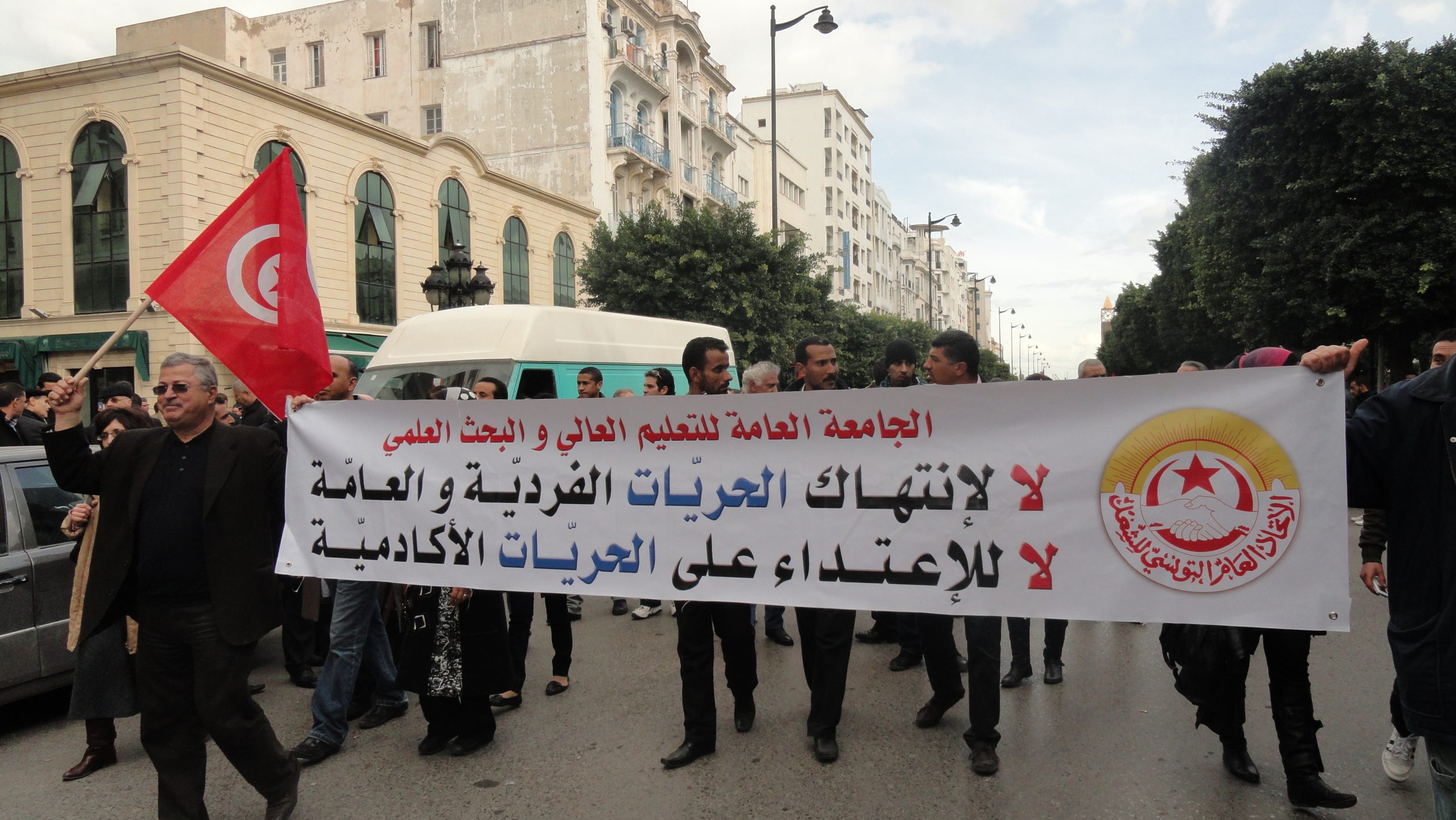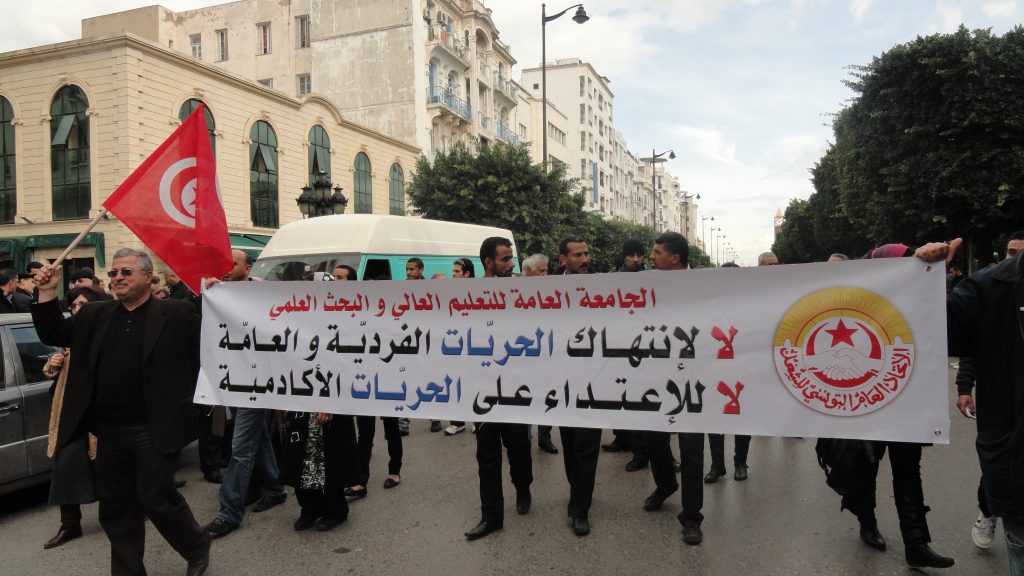In Tunisia, flights have been cancelled, public transport ground to a halt and government offices were empty in protest of the President last month.
With wages and reforms at stake, the Tunisian General Labour Union (UGTT) called on 3 million public sector workers to strike, impacting 159 state agencies and public companies.
The capital, Tunis, saw closed post offices and public utilities with strikers gathering outside the UGTT headquarters. Police were present.
Repeats were shown on public television and announcements informed viewers that staff were on strike.
According to the UGTT union, the turnout rate for the strike stood at 96.22%.
Five parties, comprising of The Democratic Current, The Democratic Forum for Labour and Liberties, The Republican Party, the Democratic Modernist Pole, and the Workers Party, all released a joint statement in support of the strike.
This all occurred before talks with the IMF to agree a new bailout plan for the indebted country, who is seeking a $4 billion loan.
The economic woes have led to spiralling inflation and the UGTT is calling for wage rises that match inflation. Unemployment figures are at 18% and inflation has been worsened by rising energy and wheat prices due to the war in Ukraine.
Boosted by the IMF’s stipulation that the bailout plan be backed by trade unions, the confederation’s opponents are struggling to keep anyone happy.
A freeze on public sector salaries, a restructuring of public companies and cuts to a few subsidies have been proposed by the government to the IMF.
These plans have been called out by the UGTT as reforms meant to please the IMF that will choke the working class. The confederation has demanded that publicly owned companies remain that way.
The confederation claimed that the strike was not political, but it came after over a year of President Kais Saied has faced growing dissent for his ongoing power grab.
Saied sacked government and suspended the elected parliament last July, going onto dissolving legislature in March this year and sacking judges by decree early last month.
The UGTT had initially backed Saied after he sacked government and suspended parliament, but the confederation has since refused to enter talks with the President due to the exclusion of opposition forces.
In the draft constitution, the President has set out his bid to get the government to answer to him rather than to parliament. The President would also have the sole responsibility for proposing treaties and creating draft budget plans.
The UGTT has explained how the absence of guarantees for freedoms rights means that these could be violated if this constitution is voted in.
A referendum on the new constitution was planned for July 25th but Saied has faced widespread opposition, including demonstrations attended by thousands across Tunisia.
Georgina Andrews, is the YCL’s Student Officer and a member of the Challenge News team




